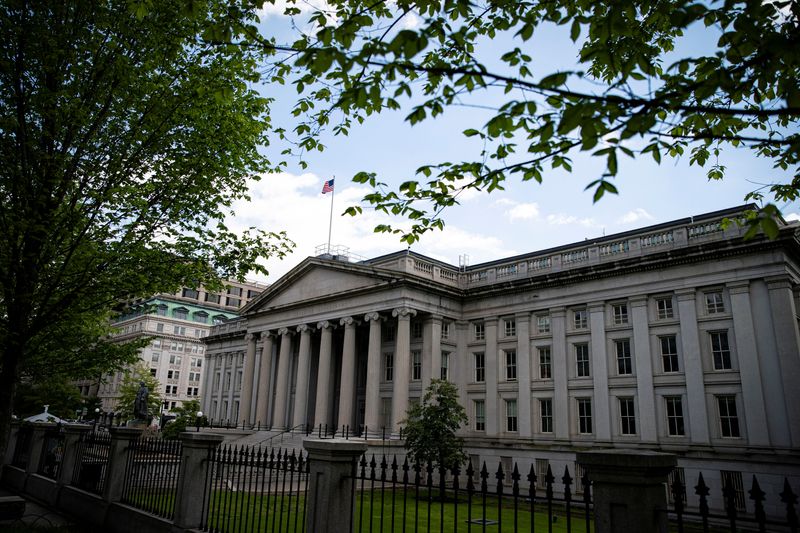By David Lawder
WASHINGTON (Reuters) - The U.S. Treasury Department on Friday said it was formally launching two new U.S.-China working groups on economic and financial issues aimed at providing a regular policy communications forum between the world's two largest economies.
In a statement, the Treasury said the two groups would "meet on a regular cadence" and report to Yellen and Chinese Vice Premier He Lifeng.
China's Ministry of Finance will be Treasury's counterpart for the Economic Working Group, while the People's Bank of China will be its counterpart for the Financial Working Group.
Formation of the groups followed Yellen's visit to Beijing in July, where she met with He and other senior officials to re-establish communications on economic and financial issues after years of deteriorating relations.
Yellen said on X, formerly Twitter, that the working groups "will serve as important forums to communicate America’s interests and concerns, promote a healthy economic competition between our two countries with a level playing field for American workers and businesses, and advance cooperation on global challenges."
"It is vital that we talk, particularly when we disagree," she added.
China's Finance Ministry and central bank both issued statements confirming the establishment of the economic and financial working groups but gave few details beyond saying they were aimed at strengthening communication and collaboration on these issues.
A senior Treasury official said Yellen has reiterated to Chinese officials that the U.S. will use the groups to promote cooperation where possible with China on global challenges, including restructuring debt for distressed developing economies, climate finance and anti-money laundering efforts.

Establishment of the two working groups also follows Commerce Secretary Gina Raimondo's agreement with Chinese officials in August to establish a working group on U.S. export controls aimed at explaining U.S. policies.
The Treasury and State Departments in past years held annual Strategic and Economic Dialogue meetings with China, but that forum ended in 2017 after former President Donald Trump took office, ushering in a more confrontational approach to China in Washington that led to a years-long tariff war between the two countries.